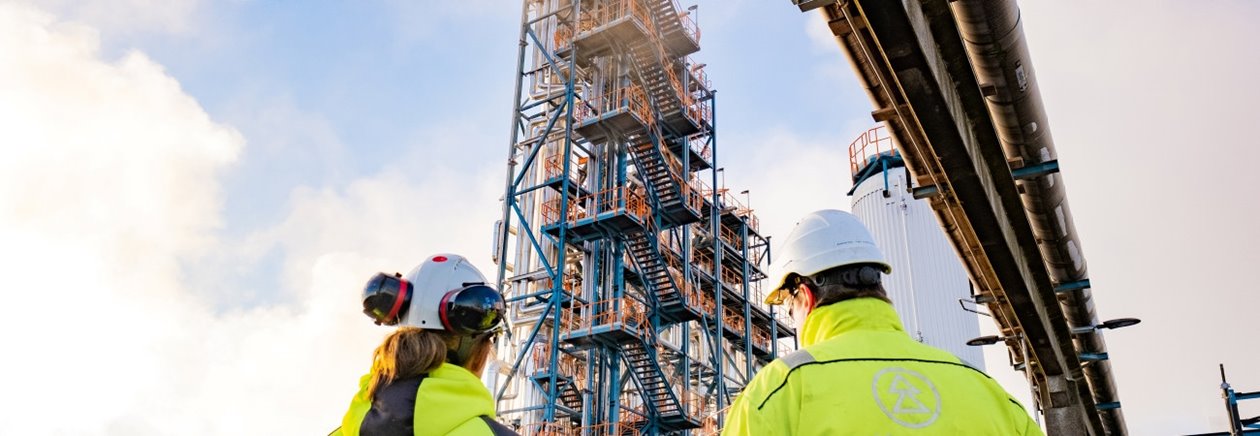Sustainable energy products
Energy already accounts for a considerable share of Södra’s operations, with such products as district heating, electricity, pellets, tall oil and bark. There is major potential here for a continued contribution towards the development of sustainable energy and transport systems and thereby helping to achieve the national and international targets for lower CO₂ emissions from both transport and energy sectors. More long-term efforts are also taking place to promote the role of the forest industry in tomorrow’s energy system.
Sustainable fuels from solid by-products and industrial by-products are a prioritised area for development. Södra is a co-owner of SunPine and supplies tall oil to this facility in Piteå for diesel and petrol applications.
Biomethanol can replace fossil fuels
Södra has commenced biomethanol production in the pulp mill at Mönsterås. Methanol is a liquid biofuel that can replace fossil fuels, providing yet another use for forest products. Biomethanol can be used as a stand-alone fuel, as a raw material for the production of biodiesel (RME) or as a fuel additive. Sales of biomethanol are a resource-efficient way to extract more products from the raw materials used in the process.
Silva Green Fuel – an investment in tomorrow’s liquid biofuels
Another liquid biofuels project is taking place within the framework of Silva Green Fuel, a joint venture owned by Södra and Statkraft. Silva Green Fuel AS is Södra’s largest investment in tomorrow’s liquid biofuels from woody biomass. At a process facility in Tofte in Norway, solid wood by-products such as sawdust and bark are converted into bio-oil that can be upgraded to biodiesel.
Alongside of these initiatives, other innovative solutions are continuously being explored that can increase the contribution of sustainable liquid biofuels from the forest industry while simultaneously maximising profitability for forest owners.
Forest-derived chemicals
Forests are also an important resource for chemical production. Prior to the development of petrochemical processes, bio-based adhesives and paints, for example, were used. Therefore, there is already knowledge that can be used to develop these alternatives in order to meet today’s needs and ambitious bio-based demands.
Chemicals such as sodium hydroxide (lye) and sulphuric acid are needed for the sulphate process used in pulp production. In some cases, these chemicals can be manufactured and recirculated within the production unit (as in the case of lye), while in other cases, own production is inefficient and the chemicals need to be purchased. Södra already produces large volumes of turpentine from by-products. The turpentine is decanted when producing crude methanol. Turpentine is used as a solvent in everything from industrial products to cosmetics. Crude methanol is also purified to produce biomethanol for use as a fuel or, alternatively, as a pure chemical substance.
The recycling of chemicals and internal energy systems at the pulp mills are also prioritised areas, with development initiatives aimed at improving the resource-efficiency of the operations and primary energy release.
Our by-products offer infinite opportunities. Tree bark contains several special compounds, such as spruce bark tannin and betulinol from birch bark. These extracts be used as adhesives and in leather tanning, as well as water repellent agents. The future willingness to pay in a more bio-based society will drive this development.
Södra is participating in a number of multinational projects in this area, such as RISE. The Climate Leading Process Industry initiative is a recently started project involving numerous players from western Sweden.

